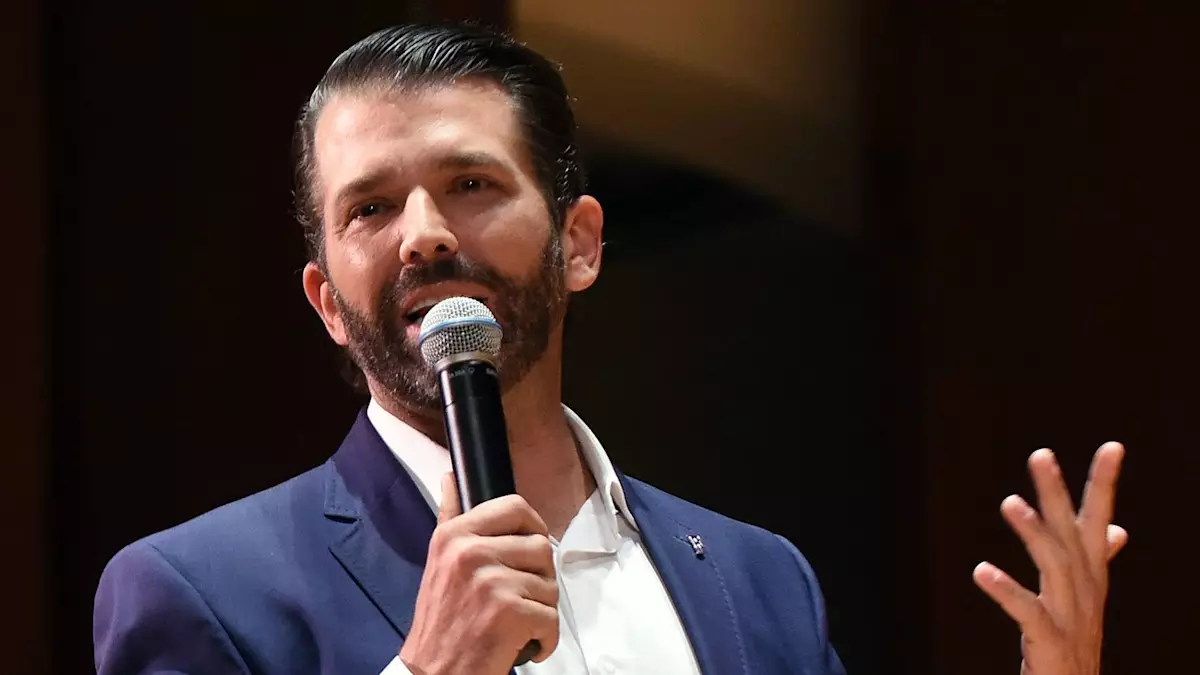In an era where political discourse often thrives on sensationalism and divisiveness, the recent remarks made by Donald Trump Jr. following former President Joe Biden’s cancer diagnosis serve as a stark reminder of how the public and private personas of political figures can clash. The announcement of Biden’s diagnosis, which was described as an “aggressive” form of prostate cancer, rightly drew sympathy and concern from many quarters. Conversely, Trump Jr.’s bitterly sarcastic comments on social media are emblematic of a troubling trend in which genuine human empathy is overshadowed by political opportunism.
This phenomenon of leveraging personal health issues for political gain is not new, but it remains disconcertingly prevalent. Immediately after the news dropped, Trump Jr. expressed skepticism about the legitimacy of Biden’s diagnosis through a series of posts on X (formerly Twitter), claiming that there might be a cover-up at play. Comments like “What I want to know is how did Dr. Jill Biden miss stage five metastatic cancer?” not only trivialized the seriousness of the situation but also displayed a lack of understanding regarding both medical qualifications and human decency.
The subsequent backlash was both swift and fierce, with social media users highlighting the irony of a man whose wealth and political connections were bequeathed to him questioning another’s qualifications. This dark facet of political commentary underscores a significant issue: the failure to recognize the humanity behind the headlines.
Misplaced Sarcasm
In what many interpreted as a desperate attempt to walk back his initial comments, Trump Jr. proclaimed that he was merely being sarcastic. However, his “defense” that it was a misunderstanding of his tone did little to alleviate the strident criticism he faced. Sarcasm can indeed have its place in political dialogue, serving as a tool for humor or critique, but not at the expense of a person facing a serious health crisis. Instead of fostering empathy, it undermines the very foundations upon which respectful political conversations should be built.
The notion that laughter can be a defense mechanism is not lost on critics. Still, it begs the question: what level of insensitivity is acceptable in addressing a fellow human’s suffering? Discomfort around mortality and health is universal, yet instead of fostering a deeper conversation about these shared experiences, remarks like Trump Jr.’s only serve to deepen the divide between the political left and right.
As he doubled down on his rhetoric, insisting that the media was in collusion with Biden’s denial of his health issues, it became increasingly unclear what facet of reality he actually believed. The fixation on conspiracies in lieu of compassion is alarming, signaling a rift in societal values that seems to prioritize outrage over empathy.
The Role of Leadership in Times of Crisis
In stark contrast, Joe Biden took a very different approach upon learning of his cancer diagnosis. He posted a poignant image with his wife and expressed gratitude for the love and support they have received. His words, “Cancer touches us all,” resonate with an important truth in our collective human experience. The fragility of life links us, regardless of political affiliation. Acknowledging this commonality is a powerful antidote to the often toxic nature of political discourse.
Biden’s ability to confront his health challenges with grace not only reflects his character but also serves as a lesson in leadership. In an age where divisiveness often reigns, the ability to communicate vulnerability can foster unity rather than division. His words remind us that the personal challenges faced by anyone can serve as a rallying point for understanding and mutual support, rather than an opportunity for derision.
It prompts us to consider: in what kind of society do we wish to live? One where political figures treat serious matters lightly, or one where empathy wins out over cynicism? As citizens, it’s essential to demand more from our leaders—greater integrity, heightened sensitivity, and a true understanding of the relational fabric that connects us all.
The juxtaposition of Biden’s earnestness against Trump Jr.’s sarcasm exposes larger issues within our political landscape. If our leaders wish to engage meaningfully, they must heed the call for compassion, especially when confronting the realities of human suffering. In the end, the capacity to treat every individual’s hardship with dignity might just be the key to healing not just our political system, but our collective humanity as well.

